 |
Construction and Efficacy
of a Quartz Crystal-Tipped Hand Drill
|
| A few years ago, amongst the shovel-and-pick gold claims and
scattered stately yuccas, I had collected some point-tipped quartz
crystals in the San Bernardino National Forest of southern California.
There were fascinating outcroppings of pegmatite, a coarse-grained
granite containing tourmaline, beryl, phosphate, micas, and quartz (to
name a few), which sometimes offered large crystals. "These must be of
some use," I thought to myself as I not-so-gently crushed the pegmatite
to reveal small pockets of clear quartz crystals. Four years later, a
few uses presented themselves. Materials Required: Pitch and Dung,
Spindles, Blades, Crystals, Grindstone: |
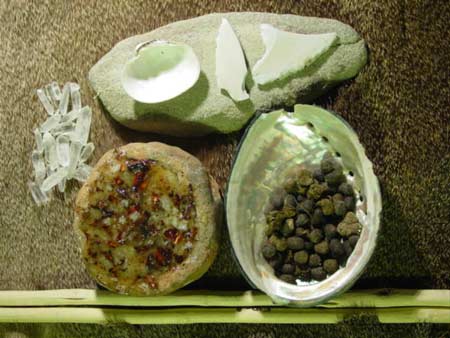 |
| |
|
|
| |
| Having nearly no knapping skills, Iíve thought long and hard about
alternatives to the stone micro-drills so wonderfully displayed in the
annals of the Bulletin of Primitive Technology. Putting the eyes in bone
needles, holes in shell ornaments, and primitively starting
friction-fire sockets are tasks that have become important to me. It had
recently dawned on me that I could simply sink a pointed quartz crystal
into a hand-drill spindle (of which I have a few hundred), affix it with
pitch, and drill away. One of the photos shows the cutting and sanding
tools, deer dung, Douglas fir pitch (and littleneck clam shell container
in which to melt it), elderberry and honeysuckle spindles, and quartz
crystals necessary to make a hand drill.
Sanding the tip: |
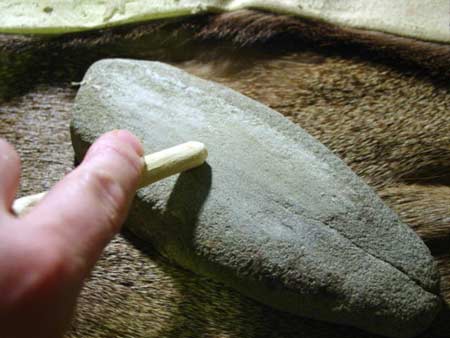 |
| |
| In order to create the socket in which the crystal would be glued
into the spindle, I hand-spun the pointed tip of the quartz into the
future working-end of the spindle shaft, which took about ten minutes.
Using a little fir pitch to firmly nest the crystal into place, the tool
was finished and ready to use. For the fun of it, I bought a fluorite
crystal and made a drill out of that, but the fun ended when I found
that this mineral was far too soft to be useful in general. Hollowing out the spindle tip: |
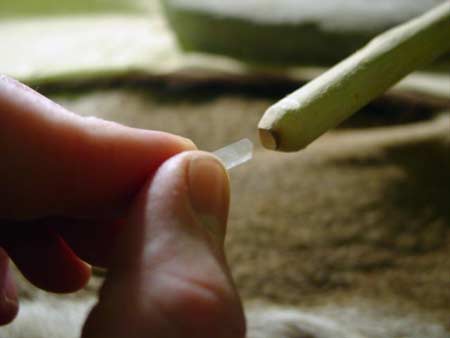 |
| |
| Now it was time to test the tools at hand. The last photos illustrate
the various materials that have been successfully drilled with the
quartz crystal hand drill. An avid friction-fire practitioner, I am very
pleased to have a wholly primitive tool capable of easily starting the
socket in which a hand drill or bow drill spindle would spin. Finished drills: |
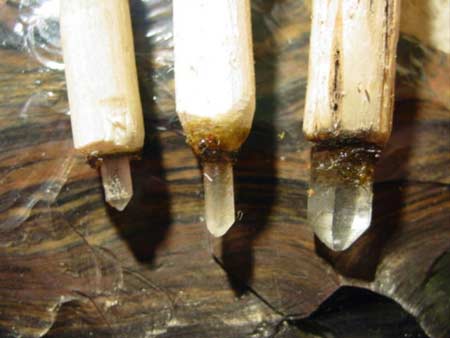 |
| |
|
Here is a little efficacy examination of this
mineral drill regarding various materials:
| Material--Time Took to
Complete Task |
(min.)
|
| CA Fan Palm Wood
Hearthboard (3mm depression sought) |
0:20
|
| Red-Belted Conk Fungus
(3mm depression sought) |
0:30
|
| Coast Live Oak
Hearthboard (3mm depression sought) |
0:35
|
| Mussel Shell (2mm thick) |
1:15
|
| Snapping Turtle Carapace
Shard (6mm thick) |
2:20
|
| Deer Leg Bone Shard (4mm
thick) |
3:25
|
| Elk Antler Shard (7mm
thick) |
4:00
|
|
| |
| Drilling in wood (I use this tool exclusively
now to pre-drill hand drill sockets) : |
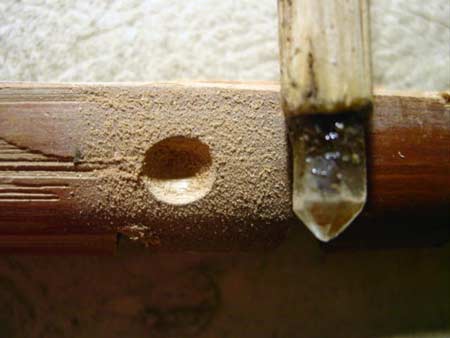 |
| |
| Drilling in shell: |
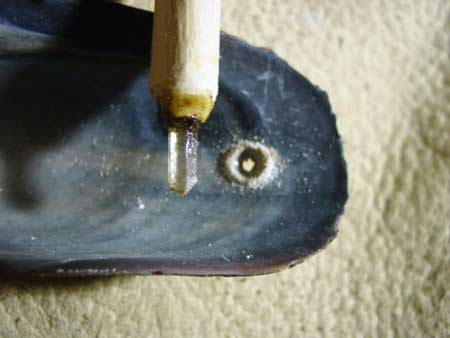 |
| |
| Drilling in elk antler: |
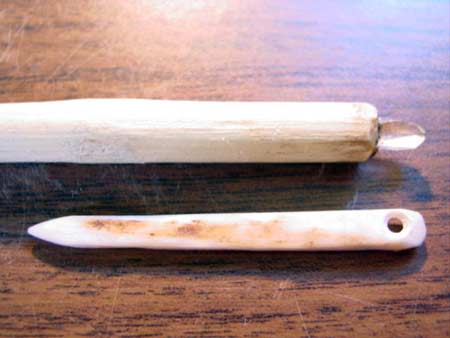 |
| |
| Drilling In Turtle Carapace, Bone, Elk Antler: |
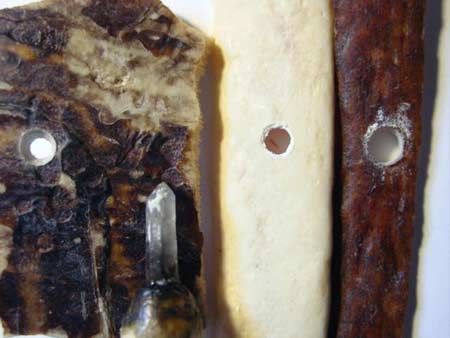 |
| |
|
View this
article as a PDF |
| |
|
|
|
 |
 |
 |



